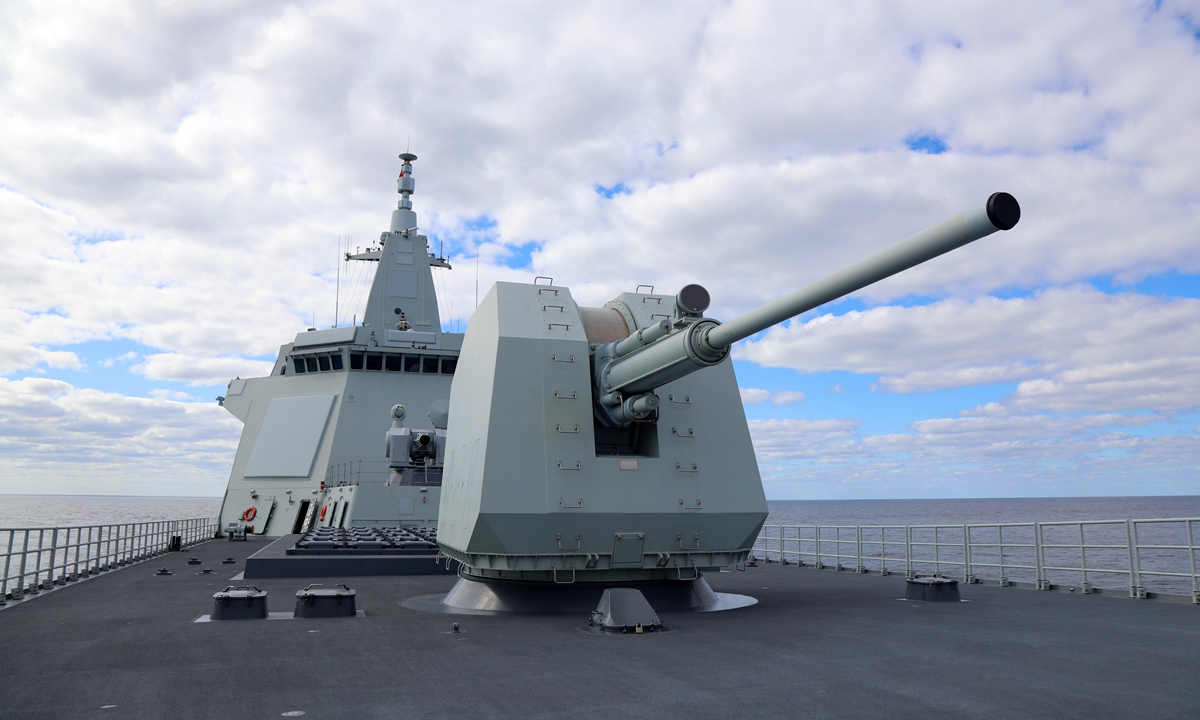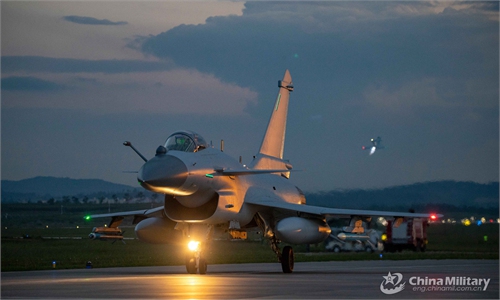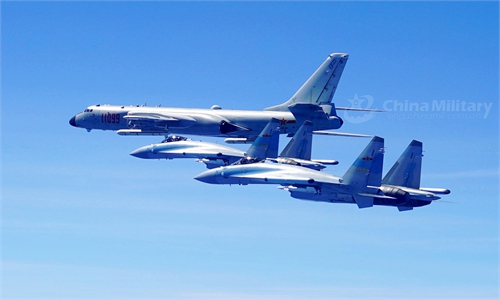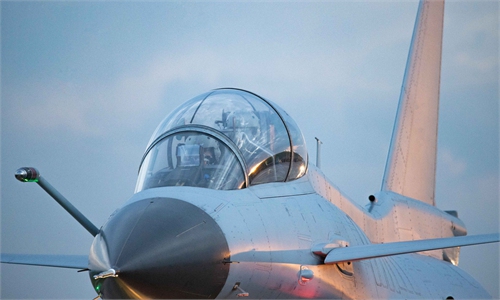China, Russia hold joint naval drill in Sea of Japan, display ‘higher level of trust, capability’

With China's advanced Type 055, a 10,000 ton-class large destroyer, for the first time joining an exercise with a foreign navy, China and Russia on Thursday kicked off a joint naval drill in the Sea of Japan, in a move that Chinese experts said not only displays the two sides' high level of strategic mutual trust, but also will enhance their capability to jointly deal with maritime security threats and safeguard regional peace and stability, at a time when Western countries are building antagonistic regional security organizations like the Quad and AUKUS.
The Naval Interaction-2021 maritime military exercise started in waters near Russia's Peter the Great Gulf in the Sea of Japan on Thursday, with the Chinese People's Liberation Army (PLA) sending advanced warships including the Type 055 large destroyer Nanchang, the Type 052D destroyer Kunming, the Type 054A frigates Binzhou and Liuzhou, and the Type 903A comprehensive supply ship Dongpinghu, as well as fixed wing anti-submarine warfare aircraft and vessel-borne helicopters from the Eastern, Southern and Northern Theater Commands, while Russia will deploy large anti-submarine ships, frigates and aircraft, the Global Times learned from the PLA Navy on the day.
During the drill, which is a normal and annually scheduled arrangement but is also held amid many profound changes and the pandemic, the Chinese and Russian navies will practice communications, sea mine countermeasures, air defense, live-fire shooting at maritime targets, joint maneuvering and joint anti-submarine missions, according to the PLA Navy.
The goal of the joint drill is to enhance the two navies' friendly, pragmatic cooperation, hone the capabilities to fight and enhance their capabilities to jointly deal with maritime security threats and safeguard regional peace and stability, Zhang Junshe, a senior research fellow at the PLA Naval Military Studies Research Institute, told the Global Times on Thursday.
It will also examine the PLA Navy's far sea capabilities, including those in command, air defense, anti-ship, anti-submarine, reconnaissance, early warning, communication and navigation, Zhang said.
The Chinese vessels did not conduct assembly or rehearsal and started the drill directly, which is closer to real combat and will contribute to their capabilities in safeguarding the security of far sea transport lanes and other maritime interests.
As the largest maritime drill series between China and Russia, the Naval Interaction has been held nine times since 2012.
This is the first time China's 10,000 ton-class large destroyer has participated in a drill abroad.
Zhang said that the Type 055 large destroyer will be the command ship in the fleet during the drill, and it will display its outstanding comprehensive capabilities including long-range detection, early warning and intelligence integration.
This is also the third time in 2021 the Type 055 has entered the Sea of Japan. The first time was in March, and the second time in August.
This reflects that the PLA's far sea training in the region is becoming routine, as it is becoming more and more confident with its growing capabilities, Shi Hong, executive chief editor of the Chinese magazine Shipborne Weapons, told the Global Times on Thursday.
Just like the J-20 stealth fighter jet, which for the first time participated in the China-Russia Zapad/Interaction-2021 joint exercise in August, the Type 055 is another one of the PLA's most powerful tools. This displays a new high of military mutual trust between the two countries, Song Zhongping, a Chinese military expert and TV commentator, told the Global Times on Thursday.
The Naval Interaction-2021 drill comes at a time when the US, India, Australia and Japan are holding Malabar naval drill in the Bay of Bengal, and also shortly after six countries including the US, the UK and Japan held drills in the South China Sea and surrounding areas.
New regional security organizations like Quad and AUKUS are serious threats to both China and Russia, and the joint drill between the two countries will contribute to regional peace and stability, Song said.
Li Shuyin, an expert at the PLA Academy of Military Sciences, told the Global Times previously that the joint drills between China and Russia have become routine and are completely normal, and if other countries see them as threats, they must have guilty consciences and want to stigmatize China and Russia.




